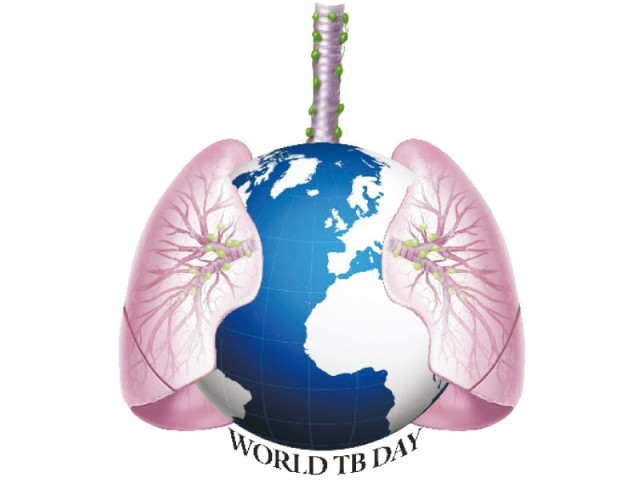World TB Day: Detection rate dips by 7%, 91% treated successfully
WHO releases Pakistan figures on tuberculosis .

The theme for this year’s TB day, celebrated on March 24 (today), is ‘Stop TB in my lifetime’.
Pakistan is among the 22 countries that constitute 80 per cent of tuberculosis cases reported worldwide. It ranks fifth on the high burden countries’ list.
The annual incidence of tuberculosis in Pakistan is 231 (per 100,000 people), say the figures, meaning that about 420,000 new patients are added each year.
Dr Gulam Nabi Kazi, WHO’s TB Programme head, told The Express Tribune that 270,422 cases were confirmed in 2011, most of whom have either completed or are undergoing treatment. Around 150,000 cases went undetected. He said that the detection rate in 2011 dipped to 63 per cent from 70 per cent in 2010. In 2001, the detection rate was six per cent. The success rate of treatment in 2010 was 91 per cent. The success rate for 2011 has not been calculated yet.
World Health Organisation’s Pakistan representative Dr Guido Sabatinelli cautioned on Friday against “complacency”. “All stakeholders need to step up the fight against tuberculosis in order to secure a better, and hopefully TB-free, nation,” he said.
The WHO recently conducted a study to determine the prevalence of drug-resistant tuberculosis, which is thought to be on the rise. The results of the survey will be released by the end of the year, Dr Sabatinelli said.
United Nations secretary general Ban Ki-Moon has described TB as “a neglected disease”, which has caused much suffering and is yet to be controlled.In his message, he urged communities to benefit from the available treatment. The secretary general has also written to President Asif Ali Zardari and heads of state of other TB High Burden Countries urging them to pay more attention to TB control.
Dr Sabatinelli said that although the Government of Pakistan had adopted the TB- Directly Observed Treatment Short-course (DOTS) strategy in 1995, it was implemented quite late, in 2000 or 2001.
He, however, said that he felt “optimistic” because of the “substantial progress” that has been made since then.
Giving details of WHO support to the National Tuberculosis Control Programme, Dr Sabatinelli said that the organisation carries out regular evaluations through annual joint review missions, provides technical support to laboratory services, human resource capacity building (through regional and country level training), data management, procurement of equipment, multi-drug-resistant TB management and emergency financial support for the procurement of drugs and operational research.
Published in The Express Tribune, March 24th, 2012.


















COMMENTS
Comments are moderated and generally will be posted if they are on-topic and not abusive.
For more information, please see our Comments FAQ